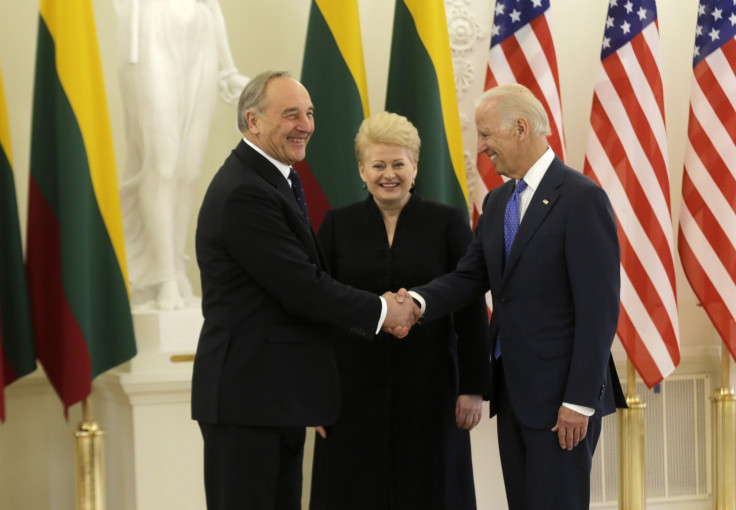US May Start Deploying Ground, Naval Forces To The Baltic, Vice President Biden Said

As Eastern European countries fear Russian belligerence after the seizure of Crimea, the U.S. announced plans to deploy ground troops and naval forces on rotation to the Baltic region.
“We are exploring a number of additional steps to increase the pace and scope of our military co-operation, including rotating U.S. forces to the Baltic region to conduct ground and naval exercises as well as training missions,” Vice President Joseph Biden said Wednesday, during meetings with Estonian and Polish officials.
Biden is visiting Eastern Europe to show U.S. support, after the Russian military occupation of the Ukrainian autonomous region of Crimea and a referendum with a 97 percent vote favoring secession from Ukraine and joining Russia. Western powers rejected the referendum.
Throughout the week Biden met with leaders from Poland and the three Baltic states, Estonia, Latvia and Lithuania, and reassured the four NATO allies of U.S. support.
Members of the alliance have become extremely suspicious of Russia’s intentions, especially as Russia’s pretext for occupying Crimea was based on protecting the ethnic Russian majority.
With that logic, officials say, eastern Ukraine and many other former republics of the Soviet Union -- especially Estonia and Latvia -- could be Russia’s next target. Many of these countries have sizable ethnic Russian or Russian-speaking populations.
The small Baltic states, for example, sit right next to Russia, and memory is vivid in all three of the Soviet invasion in the 1940s that ended their independence, until the USSR collapsed.
"This is the gravest threat to European security and stability since the end of the Cold War," Anders Fogh Rasmussen, NATO’s secretary-general, said Wednesday at the Brookings Institution, the Washington think tank. He added that Russia’s actions are a wakeup call to NATO and a reminder that security in Europe cannot be “taken for granted.”
“We need to take tough decisions in view of the long-term strategic impact of Russia's aggression on our own security," Rasmussen said.
Biden’s and Rasmussen's statements could be seen as a concerted effort to show NATO’s strength and ability to defend its borders against Russian aggression.
In early March, the U.S. sent additional F-16 fighter jets to Lithuania on top of those it maintains there for the Baltic air policing mission, shared by NATO countries.
© Copyright IBTimes 2024. All rights reserved.












